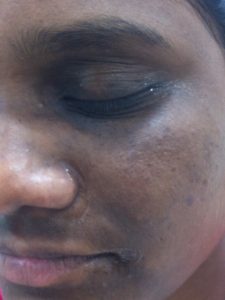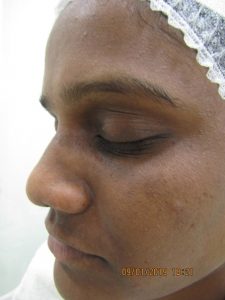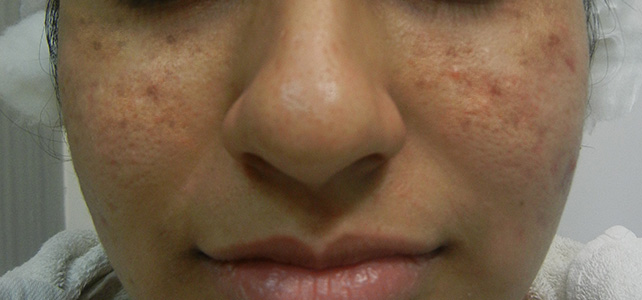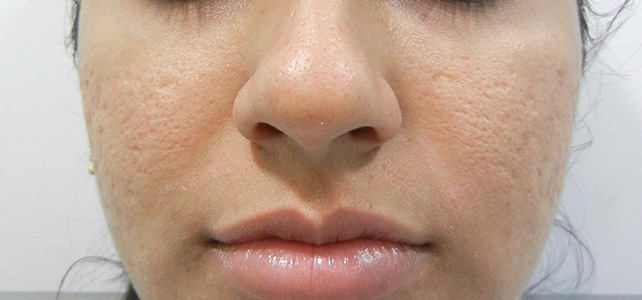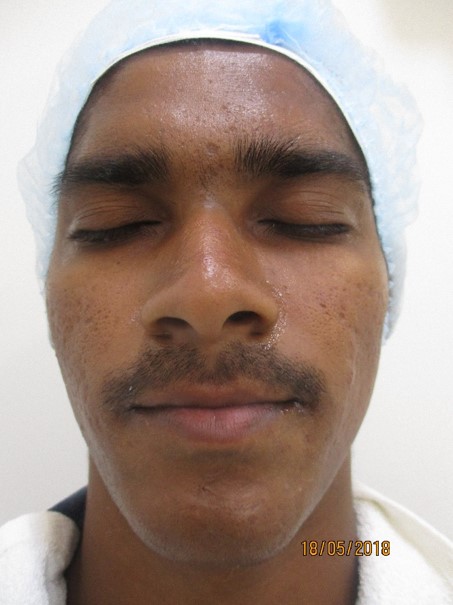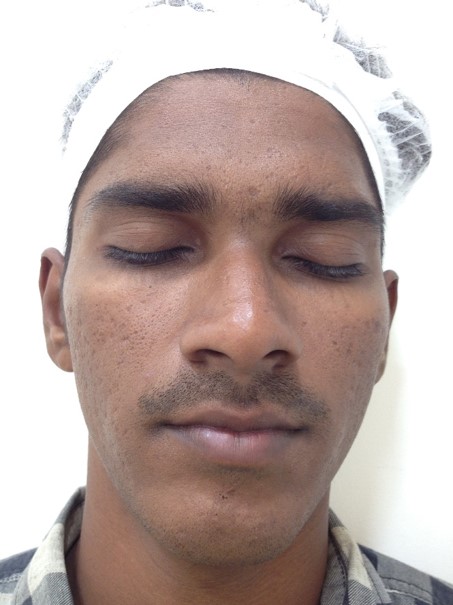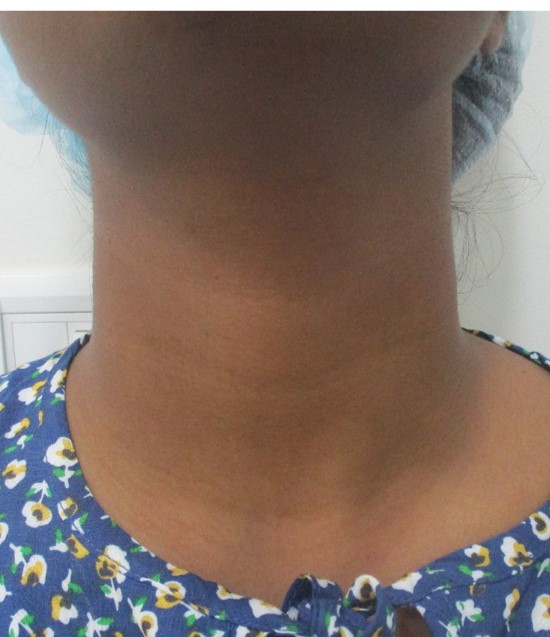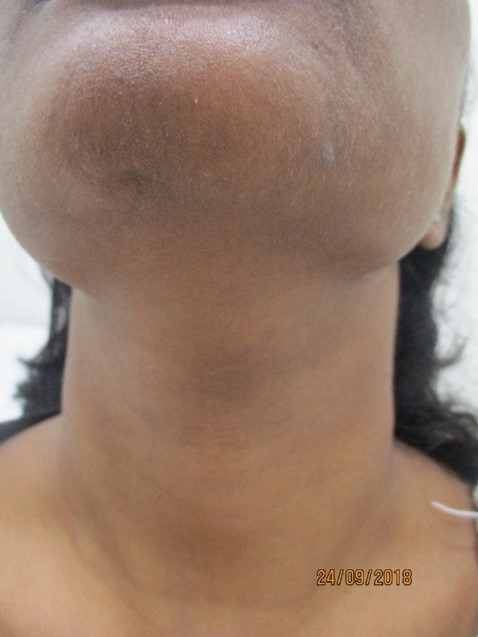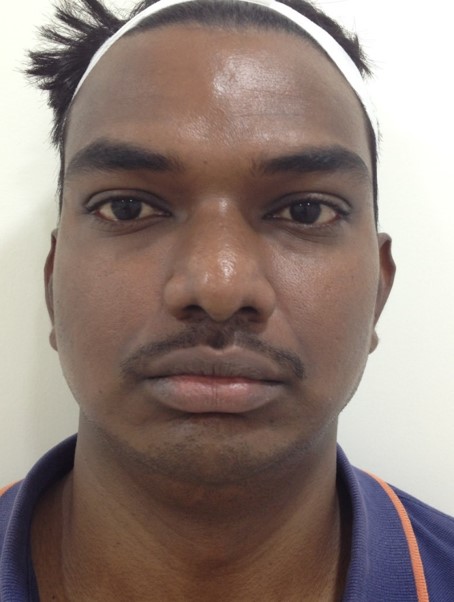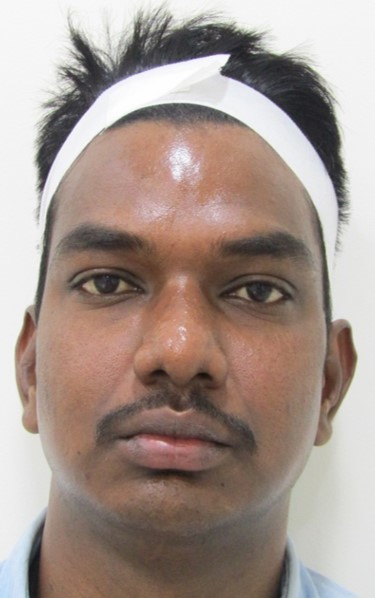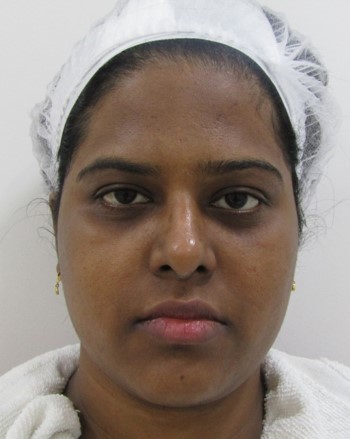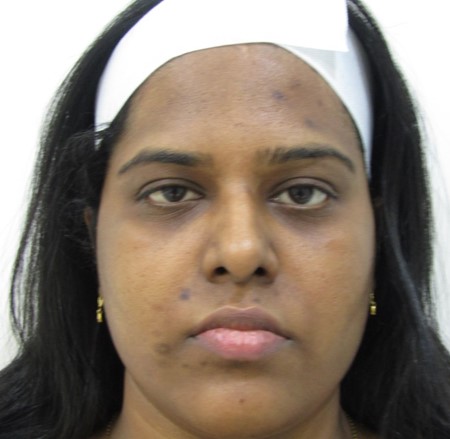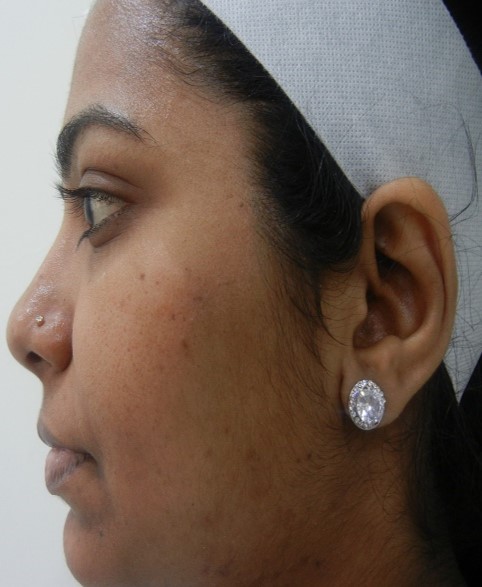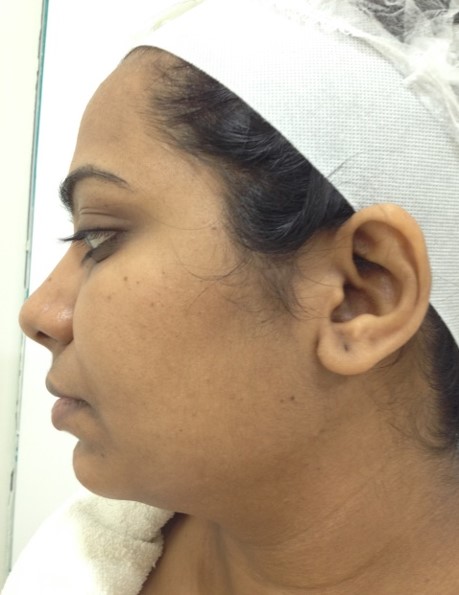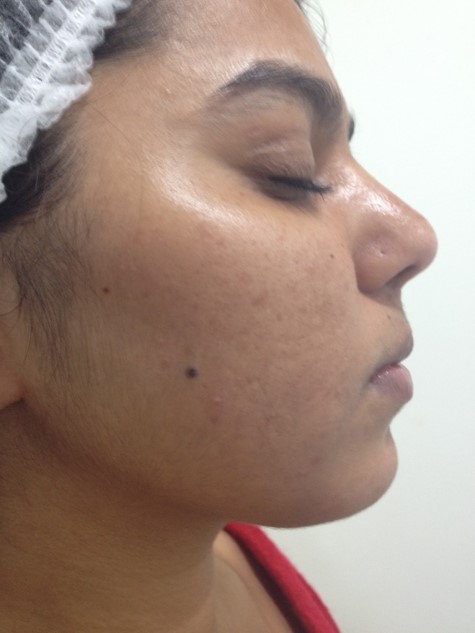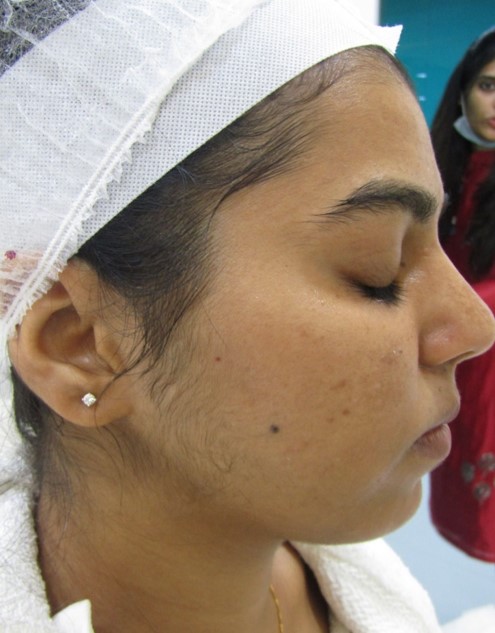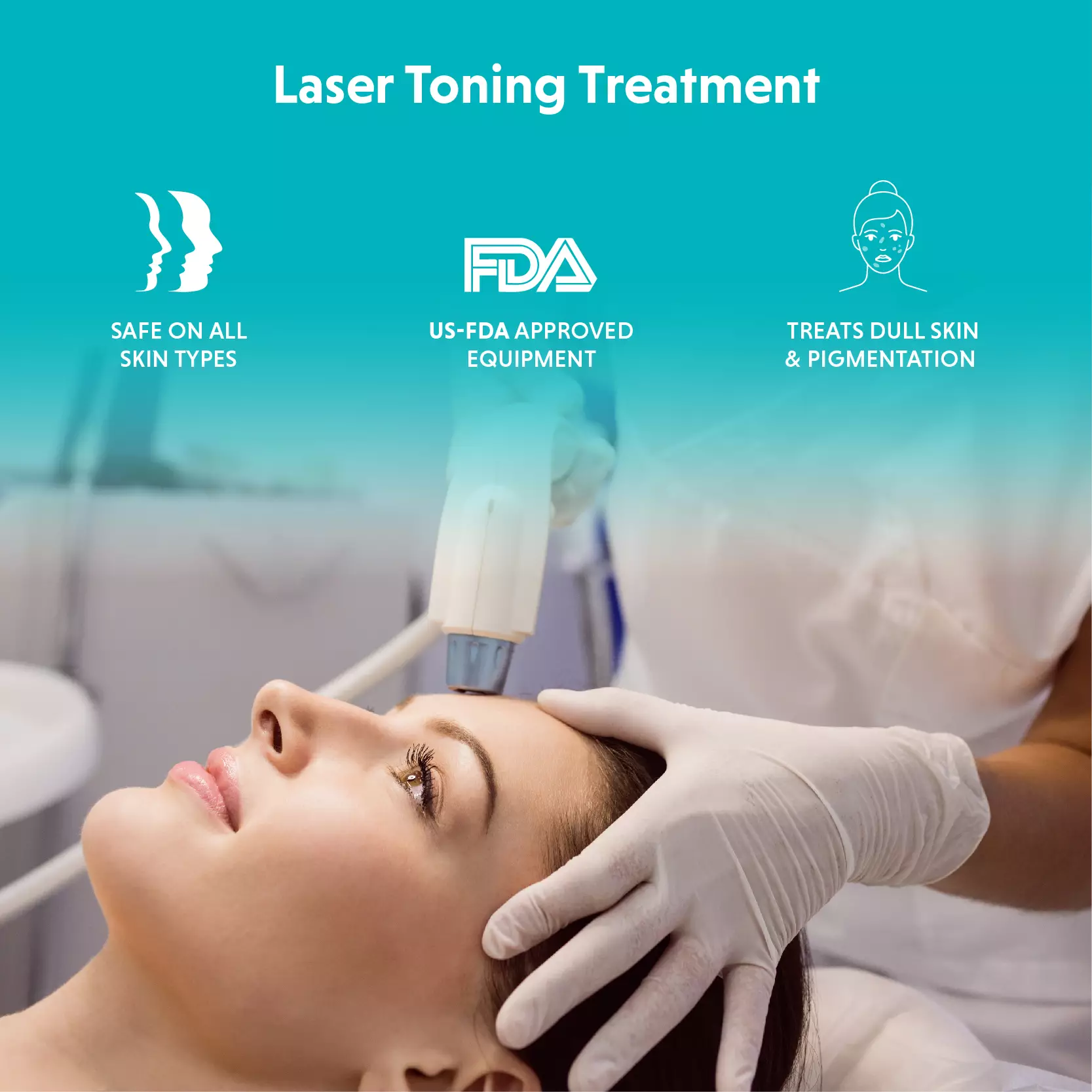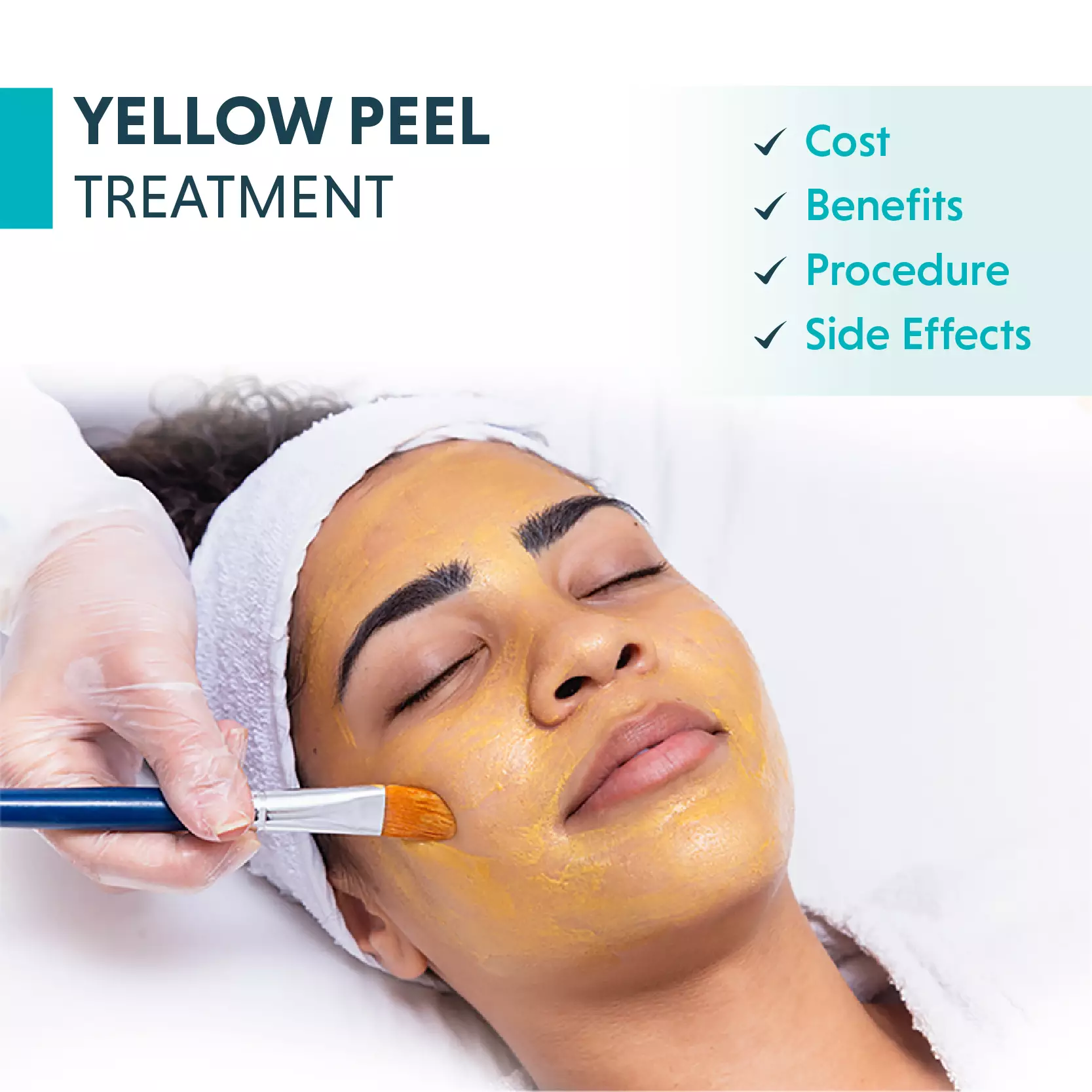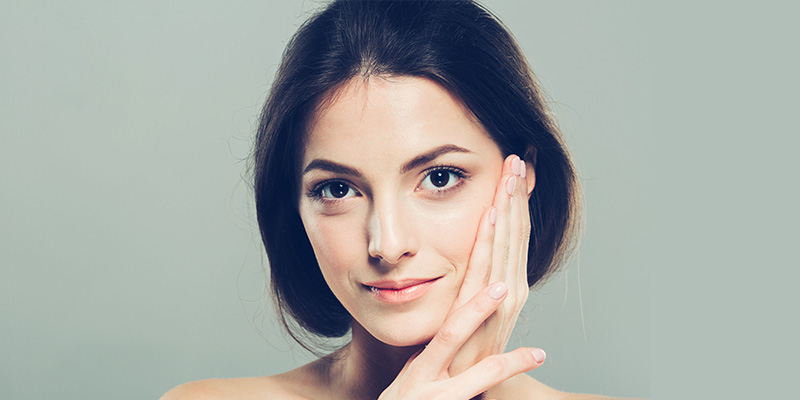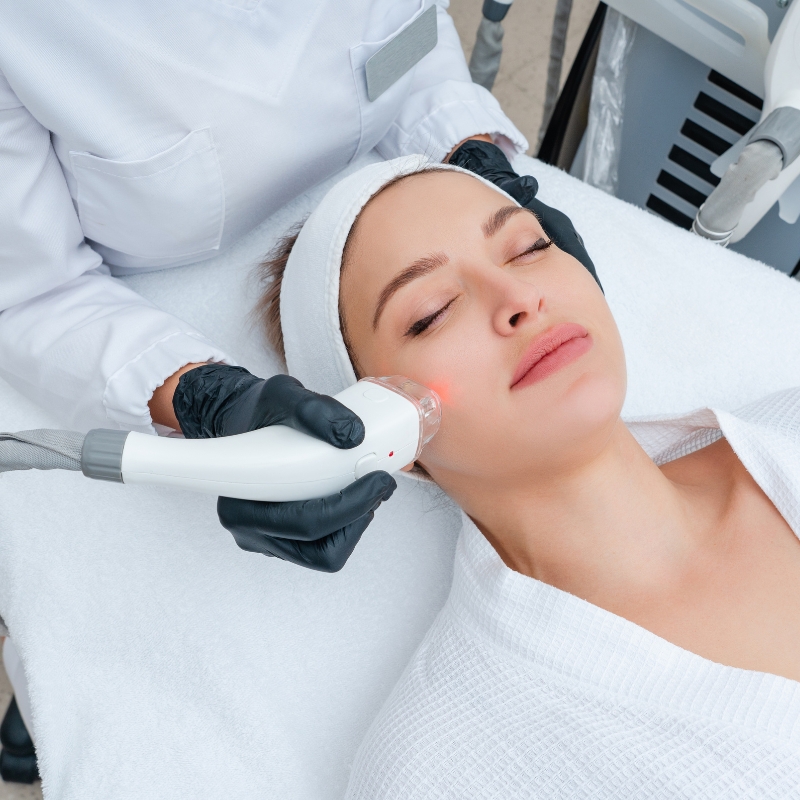Permanent Skin Whitening Treatment Cost In India: Benefits & Results
There are a variety of skin whitening treatment options available to lighten and brighten up your skin tone. These skin lightening treatments work by reducing the amount of melanin in the skin, which is responsible for the skin’s colour. This can help to lighten dark spots and even out the skin tone, resulting in a brighter, more youthful appearance.Some of the most popular skin whitening treatments include topical creams, chemical peels, and laser therapy. While skin whitening treatments can be effective, it is important to note that you should consult a dermatologist to know which one suits you best. In this guide, we will provide you with all the information you need to know about different skin whitening treatments, including their costs, benefits, risks, and how they work. So, let’s dive in and discover how you can unlock your skin’s natural brilliance!
Table of Contents

What Is Skin Whitening Treatment?
Skin whitening treatments reduce the appearance of hyperpigmentation, dark spots, or uneven skin tone, ultimately resulting in a lighter complexion. These treatments can target specific pigmentation concerns or improve overall skin colour.
Skin lightening treatments inhibit melanin production, the pigment responsible for our skin and eye colour. Various factors affect melanin production, such as sun exposure, hormonal changes, genetics, and ageing.
EXPERT ADVICE
Most people believe that skin lightening treatments are the same as skin whitening solutions. However, skin whitening treatments that promise instant fairness results are a myth. It is medically not advisable to whiten your complexion beyond your natural one. Do note that skin whitening treatments that alter the concentration of melanin with the use of harsh chemicals are highly unsafe and may cause severe health complications. The demand for fairness and skin whitening treatments only stems from social prejudices.
On the other hand, skin lightening treatments refer to clinical procedures that can help you restore your natural skin tone.
–Dr. T N Rekha Singh, MBBS, MD – Dermatology , Venereology & Leprosy
Why Are Skin Whitening Treatments So Popular?
Skin whitening treatments are increasingly popular as you may have an uneven skin tone due to various reasons:
Hyperpigmentation:
- Melasma: This pigmentary condition causes symmetrical brown or grey patches on the face, particularly on the cheeks, forehead, chin, and upper lip. It usually occurs due to hormonal changes during pregnancy or due to use of oral contraceptives, or as a side effect of hormone replacement therapy. Sun exposure can exacerbate melasma.
- Post-Inflammatory Hyperpigmentation (PIH): PIH occurs as a result of inflammation or injury to the skin caused by acne, eczema, psoriasis, or allergic reactions. When the skin heals, it may produce excess melanin, leading to dark patches or spots.
- Sun Exposure: Ultraviolet (UV) radiation from the sun stimulates melanocytes, the pigment-producing cells in the skin, to produce more melanin. Prolonged sun exposure without protection can lead to sunburn and tanning, as well as the development of dark spots, freckles, and uneven skin tone.
Genetic Factors:
- Ethnicity: People with darker skin tones naturally have more melanin, which provides more protection against UV rays. However, genetic factors can cause variations in skin pigmentation within an ethnic group.
- Family History: Genetic predispositions may result in conditions that cause skin discolouration, such as vitiligo.
Hormonal Changes:
- Pregnancy: Hormonal changes during pregnancy can cause melasma or the ‘mask of pregnancy’ leading to symmetrical dark patches on the face.
- Menopause: Hormonal fluctuations during menopause may result in skin darkening.
- Hormonal disorders: Hormonal imbalances due to thyroid disorders, polycystic ovary syndrome, and insulin resistance can trigger melanin production.
- Medications: Some medications, such as hormone replacement therapy, chemotherapy and certain antibiotics, can increase sensitivity to sunlight and cause pigmentation as a side effect.
Skin Conditions:
- Acne: Moderate and severe acne can cause post-inflammatory hyperpigmentation, resulting in dark spots or marks.
- Eczema and Psoriasis: These chronic skin conditions can lead to inflammation and hyperpigmentation due to repeated scratching or irritation.
Lifestyle Factors:
- Smoking: Smoking can accelerate skin ageing and contribute to skin discolouration due to decreased blood flow and oxygen delivery to the skin.
- Poor Diet: A diet lacking in antioxidants and essential nutrients can compromise skin health and cause pigmentation issues.
- Nutritional Deficiencies: Inadequate intake of essential nutrients, such as vitamin D or vitamin B12, can affect skin health and colour.
Environmental Factors:
- Pollution: Exposure to environmental pollutants and toxins can damage the skin and contribute to pigmentation problems.
- Chemical Irritants: Skincare products or cosmetics containing harsh chemicals can cause inflammation and exacerbate pigmentation issues.
- Ageing: With age, the skin’s natural cell renewal process slows down, leading to an uneven skin tone.
EXPERT ADVICE
Understanding the causes of uneven skin tone is of critical importance as it helps select an appropriate treatment to get safe and sustainable results.
–Dr. Brahmaiah, MBBS, DDVL – Diploma in Dermatology, Venereology & Leprosy
Best Skin Lightening Treatment In India
There are several methods used for skin lightening and they can be categorized into two main types topical and medical.
Topical Skin Lightening Treatments:
Topical treatments are generally suitable for mild to moderate pigmentation. Here is the list of topical skin lightening agents used in skin lightening creams, serums, and lotions available in the Indian market.
-
Hydroquinone Creams:
Hydroquinone is a popular ingredient that inhibits melanin production. It blocks the activity of the enzyme tyrosinase and decreases melanin synthesis. Hydroquinone creams are available over-the-counter or by prescription in various concentrations.
-
Kojic Acid:
A fungal derivative, kojic acid is another effective skin lightening agent present in fairness creams, serums, and soaps.
-
Alpha Hydroxy Acids (AHAs):
AHAs such as glycolic acid and lactic acid exfoliate the skin’s surface, promoting cell turnover and fading dark spots over time. They are popular ingredients in exfoliating toners, serums, and peels.
-
Vitamin C:
Ascorbic acid, or vitamin C, has antioxidant properties that brighten the skin by inhibiting melanin production and promoting collagen synthesis. Vitamin C serums are popular for their skin brightening effects.
-
Retinoids:
Retinoids, derivatives of vitamin A, can improve skin tone and texture by increasing cell turnover. Prescription retinoid creams are available for treating hyperpigmentation.
-
Licorice Extract:
Licorice root extract contains glabridin, which inhibits tyrosinase activity and lightens dark spots.
-
Arbutin:
Arbutin is a natural compound present in bearberry, cranberry, and blueberry extracts. It works by inhibiting melanin synthesis and helps lighten the skin colour and reduce freckles, stretch marks and age spots.
-
Niacinamide (Vitamin B3):
Niacinamide helps brighten the skin and reduce hyperpigmentation by inhibiting melanosome transfer from melanocytes to keratinocytes.
-
Papaya Extract:
Papaya contains papain, an enzyme that exfoliates the skin and helps fade dark spots.
EXPERT ADVICE
It’s essential to consult a qualified dermatologist before using any skin lightening products. Overuse or misuse of certain ingredients can lead to adverse effects such as skin irritation, allergic reactions, or even long-term damage.
–Dr. Debatri Datta, MBBS, MD – Dermatology , Venereology & Leprosy
Medical Skin Lightening Treatments
There are various in-clinic skin lightening treatments that can help you achieve the desired results. Depending on your needs and preferences, you can choose to treat a specific body area or your entire body. However, before starting any treatment, it is crucial to consult a qualified and experienced dermatologist to evaluate your skin’s condition and the suitability of the procedure.
Chemical Peels:
In this procedure, a dermatologist will recommend the application of a solution containing alpha-hydroxy acids extracted from natural sources to exfoliate the damaged upper layers of the skin. It helps to eliminate the melanin buildup and allows healthy tissue to appear on the surface. On the basis of the concentration, chemical peels can be of three types – light, medium, or deep. A chemical peel is a gentle option to lighten discoloured skin by effectively reducing facial blemishes, tan, dark spots and even out the skin tone. Chemical peels are suitable for a facial skin lightening procedure.
EXPERT ADVICE
It is crucial to understand that qualified dermatologists should perform customised skin lightening chemical peels for a safe treatment experience and the best results. Incorrect application of chemical peels by medically unqualified professionals may cause severe damage, such as skin irritation, burns, or scarring.
–Dr. T N Rekha Singh, MBBS, MD – Dermatology , Venereology & Leprosy
Laser Treatment For Skin Lightening:
During laser skin lightening treatment, dermatologists use a focused light beam of a specific wavelength to reduce the melanin build up in the target area. The light energy converts to heat energy, which the melanin absorbs and breaks down. The body’s natural immune system eliminates the melanin debris, resulting in healthier, brighter, and flawless skin.
Dermatologists customise laser treatments to suit individual skin types and address hyperpigmentation concerns such as, sun tan, melasma, age spots, and uneven skin tone. Dermatologists may use different types of lasers like Q-Switched and Fractional depending on the specific needs of the client. Some lasers target superficial pigmentation, while others penetrate the deeper layers of the skin for more dramatic results.
One advantage of laser treatment for skin lightening is its precision, as it can selectively target pigmented areas without damaging the surrounding tissue. However, multiple treatment sessions are necessary to achieve optimal results, and there may be some redness, swelling, or temporary darkening in the treated areas, which will subside within a few hours after the treatment.
EXPERT ADVICE
After laser therapy it’s important to follow post-care instructions provided by your dermatologist, which may include using gentle skincare products, avoiding sun exposure, and applying sunscreen regularly to protect the skin and maintain the treatment results.
–Dr. Brahmaiah, MBBS, DDVL – Diploma in Dermatology, Venereology & Leprosy
Microdermabrasion For Skin Lightening:
Microdermabrasion is a skin polishing procedure that uses a handheld device to exfoliate the outer layers of the skin. It typically uses abrasive crystals or a diamond-tipped wand to remove the outer layer of dead skin cells and promote cellular regeneration.
While microdermabrasion can improve the overall texture of the skin, its ability to lighten the skin is relatively limited. This is because microdermabrasion primarily targets the surface layers of the skin and does not affect melanin production. As a result, most dermatologists now consider microdermabrasion to be an outdated technique for skin lightening, preferring more advanced and targeted treatments such as chemical peels, laser therapy, or topical skincare products with proven skin lightening ingredients.
Medi-Facials For Skin Lightening:
Dermatologists offer advanced facial treatments using medical-grade products and techniques to lighten the skin tone. These facials typically involve exfoliation, cleansing and application of specialised serums or masks containing skin brightening ingredients. However, before considering any medi-facial, it is advisable to consult a dermatologist to check your skin condition and sensitivity.
EXPERT ADVICE
Medi-facials are a great choice for those who want to quickly enhance their skin’s appearance, especially for special events as they take place under the expert dermatologist’s supervision. But is not advisable for people who are looking for long-lasting results. They work well as a follow-up treatment to preserve the outcomes from more intensive therapies, such as laser treatment or chemical peels.
–Dr. Debatri Datta, MBBS, MD – Dermatology , Venereology & Leprosy
Skin Whitening Injections:
Skin whitening injections contain glutathione, a skin lightening agent that minimises the production of an enzyme called tyrosinase, which increases the melanin levels. As per popular perception, these injections can detoxify the body, protect the skin from harmful UV rays and enhance your skin tone. The “Natural Medicine Comprehensive Database” classified the use of this injection in the “possibly safe” category, though it does not comment on its efficacy as a skin lightening agent. Some studies suggest a high dosage of glutathione is unsafe and may cause severe side effects. Currently, there is a paucity of evidence-based studies to ascertain the results of glutathione. Although selected skin clinics offer these injections, it is advisable that you consult an experienced dermatologist to make an informed decision.
EXPERT ADVICE
Skin whitening glutathione injections offer temporary results and involve a huge risk of causing serious health complications. So, it’s best to discuss other safe skin lightening treatments suitable for you with a qualified dermatologist. It’s important to note that the skin lightening treatment results can vary depending on individual skin types, the severity of pigmentation, and adherence to a consistent skincare regimen. Additionally, sun protection is essential to prevent further skin darkening and to maintain the results achieved from other skin lightening treatments.
–Dr. T N Rekha Singh, MBBS, MD – Dermatology , Venereology & Leprosy
Skin Lightening Before And After Results
Check out the before and after images to know the visible result of the skin lightening treatment:
Is Skin Lightening Treatment Permanent?
The effects of skin lightening treatment can last between a few months to a few years.
Dermatologist Tips To Maintain Skin Whitening Treatment Results:
- Leading a healthy lifestyle
- Using a good sunscreen to protect your skin from harmful sun rays
- Following a suitable skin care routine
- Opting for maintenance sessions from time to time
- Consuming a balanced diet and increasing your water intake
NOTE:
The results from using bleaching agents and chemical peels are temporary. A relatively long-term solution for skin lightening is laser treatment.
Skin Whitening Treatment Price In India
The average cost of skin whitening treatment ranges from Rs 1,800 to Rs 5,500 for chemical peels, Rs 4,000 to Rs 30,000 for laser treatment and Rs 6,000 to Rs 40,000 for skin lightening injections. Similarly, the cost of fairness creams can range between Rs 200 and Rs 2,000.
Below is the detailed price list of skin whitening and lightening treatments:
| Treatment | Description | Cost per Session (INR) | Total Treatment Cost (INR) |
| Laser Skin Whitening | Uses laser technology to reduce pigmentation and even out skin tone. | 4,000 – 17,000 | 25,000 – 80,000 (6-8 sessions) |
| Laser Toning | Aims to improve skin texture and tone by targeting deeper layers of the skin with laser. | 5,000 – 15,000 | 24,000 – 90,000 (6-8 sessions) |
| Chemical Peel | Utilizes chemical solutions to exfoliate the skin and remove dead skin cells, revealing lighter skin. | 1,800 – 5,500 | 5,400 – 33,000 (6-8 sessions) |
| Insta Glow Treatment | A specialized treatment to rejuvenate and brighten the skin for an instant glow. | 3,000 – 7,000 | 18,000 – 42,000 per session (6-8 sessions) |
| Hydrageneo Facial | A specialized treatment to rejuvenate and brighten the skin for an instant glow. | 5,000 – 10,000 | 5,000 – 10,000 per session |
| Medi Facials | Customized medically proven facial treatments that include advanced skincare products and techniques for glowing skin. | 2,000 – 5,000 | 2,000 – 5,000 per session |
| Glutathione Injections | Involves administering glutathione to reduce melanin production and lighten skin. | 6,000 – 40,000 | Based on dosage and number of sessions |
| Glutathione IV | Intravenous administration of glutathione for systemic skin lightening effects. | 5,000 – 20,000 | Based on dosage and number of sessions |
| Microdermabrassion | A non-invasive procedure that exfoliates the skin using a diamond tip or crystals. | 1,500 – 4,000 | 4,500 – 24,000 (3-6 sessions) |
Below are the skin whitening treatment prices based on the body area:
| Body Area | Minimum Cost | Maximum Cost |
| Face | 5000 | 9000 |
| Neck | 3700 | 6500 |
| Face & Neck | 6500 | 10500 |
| Lip | 2200 | 3200 |
| Under Arms | 4500 | 6500 |
| Upper Arms | 5550 | 8250 |
| Lower Arms | 5550 | 8000 |
| Full Arms | 9200 | 13800 |
| Chest | 5600 | 8000 |
| Abdomen | 7500 | 9650 |
| Upper Back | 4900 | 9900 |
| Full Back | 9150 | 12250 |
| Full Front | 9250 | 12150 |
| Full Legs | 10200 | 14000 |
| Upper Legs | 7650 | 10250 |
| Lower Legs | 7650 | 13800 |
| Feet | 3500 | 7050 |
| Bikini | 5550 | 7500 |
Disclaimer
Please note that the prices mentioned are indicative and may vary depending on the specific treatment, choice of technology, and underlying skin or hair conditions. Prices are also subject to change based on ongoing promotions or offers at the clinic. For an accurate estimate, please consult with our dermatologist.
Factors That Affect Skin Whitening Treatment Cost In India
The cost of skin lightening treatment can vary depending on several factors, including the following:
- Type Of Treatment: There are various skin lightening treatments available, including topical creams, chemical peels, laser therapy, and more. The cost can vary significantly depending on the treatment selected.
- Severity Of Condition: The severity and depth of discolouration can directly determine the cost. More severe cases may require multiple sessions or more intensive treatments, which can drive up the overall expense.
- Treatment Area: The size of the target area affects the cost. Treating larger areas like the entire face or multiple body parts will typically be more expensive than targeting smaller areas like underarms and lips.
- Number of Sessions: Most skin lightening treatments require multiple sessions to achieve the desired results. The cost may increase if you need more sessions.
- Quality Of Products Or Technology: For topical treatments, the brand and quality of the products used can affect the cost. For clinical procedures high-end and sophisticated technology may come at a premium price compared to outdated and cheaper technologies. The cost of treatment varies with the safety and efficacy of technology.
- Geographical Location: The cost of skin lightening treatment varies based on the geographic location. Treatment prices are higher in urban areas with higher living costs.
- Clinic/Dermatologist Reputation: Reputed clinics with qualified medical professionals may charge a premium for the assured safety and results they provide.
Skin Whitening Treatment Packages
Here are some popular skin whitening treatment packages available in the market:
Treatment Area |
Description |
| Full Body Skin Whitening Treatment | This package offers a comprehensive approach to achieving an even skin tone across the entire body. |
| Facial Skin Whitening Treatment | This package includes all facial areas, including sensitive areas like the upper lip. |
| Underarm Whitening Treatment | Targeted treatment for brighter underarms. |
| Neck, Hands, and Feet Brightening | It offers skin lightening solutions for often-neglected areas. |
| Private Parts Whitening Treatment | Discreet treatment for achieving an even tone in the intimate areas. |
Why to Choose Oliva Clinic
Oliva Skin Care Clinic stands out for its combination of expertise, cutting-edge technology, and a commitment to patient satisfaction. Their team of over 100 dermatologists offers personalized treatments for various skin concerns, from acne and scars to hair loss and aging. They leverage USFDA-approved technologies and prioritize safety while striving for unparalleled results. Founded in 2009 with a growing network of clinics, Oliva’s experience and industry recognition (Times of India’s No. 1 Dermatology Clinic Chain Award) solidify their position as a trustworthy leader in dermatological care.
Frequently Asked Questions
No, skin whitening treatments that promise fairness using harsh chemicals remain scientifically unproven for safety and efficacy and can cause many severe side effects. However, skin lightening treatments such as laser toning and chemical peels are USFDA-approved for safety as they aim to reduce melanin buildup in the skin. However, it is advisable to consult a certified dermatologist to know which skin lightening treatment option is best for you.
There are several home remedies available for skin whitening, but it’s important to note that most of them lack scientific evidence to support their efficacy. Some of these remedies may show temporary improvement in skin tone, but they also come with inherent risks such as allergic reactions, skin irritation and potential damage to the skin barrier. Therefore, it’s critical to be cautious while trying out any home remedy for skin whitening.
Most dermatologists recommend laser toning as the best treatment for skin lightening since it does not damage the surrounding skin. However, the suitability of this treatment depends on an individual’s skin type and the severity of their condition. Consult a dermatologist to learn about the suitable treatment option for you and achieve the best possible skin brightening results.
Skin whitening treatments like glutathione injections offer short-lived fairness results. Instead, laser skin lightening treatment can provide lasting results with minimal maintenance sessions and a customised skincare regimen.
The safety of skin whitening treatment depends on the method used, the expertise of the professional, and individual skin characteristics. You should opt for skin whitening products or clinical treatments only after consulting a qualified dermatologist for optimal safety.
History


